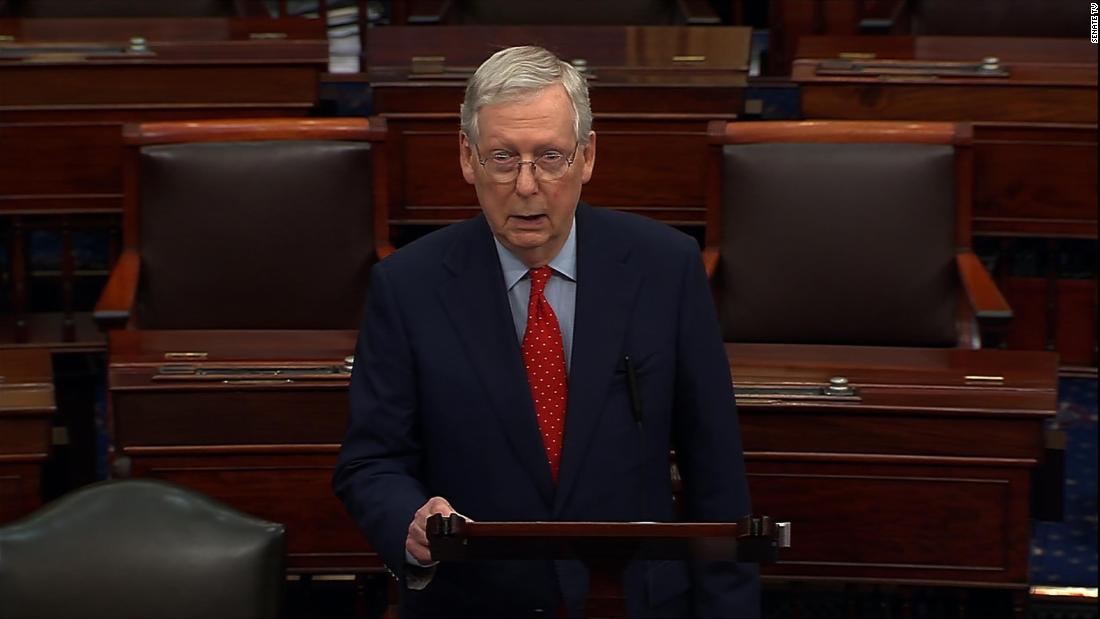[ad_1]
Never mind that 26 of 50 state governors are themselves Republicans. Or that Larry Hogan, the Maryland Republican who chairs the National Governors Association, warns that states face “drastic cuts to the programs we depend on to provide economic security, educational opportunities and public safety” without $500 billion in aid from Washington.
Instead, McConnell suggests, states in need could declare bankruptcy — though that’s not in fact the case. Even if that merely represents an initial bargaining position, his comments channel the interwoven objections of influential Republican constituencies.
Cut, cut, cut
Free-market ideologues see shrinking government as a central priority. Anti-tax crusader Grover Norquist famously framed that philosophy this way: “I simply want to reduce (government) to the size where I can drag it into the bathroom and drown it in the bathtub.”
Wealthy Republican donors disdain government as an unwelcome source of taxes and business regulations. They can purchase private alternatives to broad-based public services in realms such as education, health care and transportation.
Republicans in Congress see unionized government workers as hostile soldiers fighting against their reelection. Responsibility for financing the services those workers provide falls to governors and state legislators, not them.
The wild card in this constellation of forces is the party’s increasing dependence on working-class white voters. Republicans have long capitalized on their suspicion that many government programs benefit others, not them. Trump placed appeals to their racial resentments at the center of his 2016 campaign.
Republican voters like entitlement spending even if the party doesn’t
Yet those voters support, and depend upon, the biggest government programs of all: Social Security, Medicare and Medicaid. GOP donors and ideologues, who opposed the creation of those benefit programs in the 20th century, have not fully embraced them even in the 21st.
Many first responders on the front lines of the coronavirus fight are Republicans. So are many of the elderly and middle-aged Americans with health challenges most at risk from the virus.
Another congressional fight looms
In this “historic tragedy,” said Susan Molinari, a former Republican congresswoman from New York, governors generally have been “very smart” in fighting the virus.
“I don’t understand” how Washington can ultimately turn them down, she added.
His poll ratings sagging in key battlegrounds, Trump has a reelection incentive to protect states from near-term financial disaster. But for most of his term, the President has shown little willingness or ability to push Republican lawmakers where they don’t want to go.
“It depends on how hard Trump wants to push for this,” Molinari said. “I don’t know.”




















